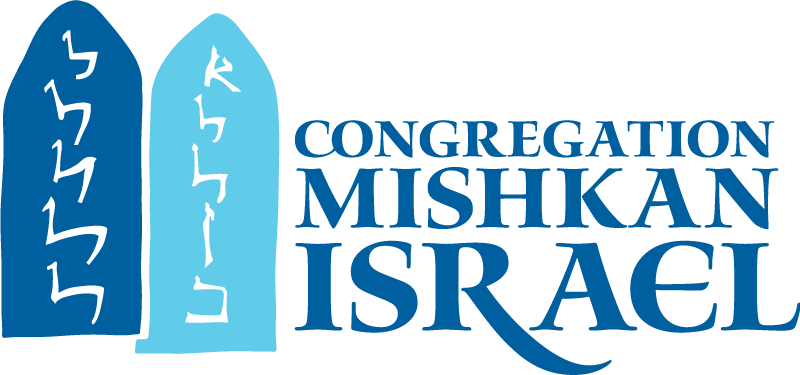As we enter into August much of our focus at CMI turns to the High Holy Days and the return of our students to religious school. This year our focus is no different. We are still preparing services from our ancient liturgy and familiar melodies to uplift us all during the Days of Awe. We are still preparing lesson plans and workbooks for our students to help them build a positive Jewish identity and build community. The difference, of course, is that we are working hard to do this all online.
Read MoreThis week we begin reading our fifth book of the Torah, Deuteronomy. As we begin reading our sacred text we realize that something feels different. As Professor Bill Hallo, a CMI member of blessed memory, writes in the Reform Torah Commentary, "Deuteronomy occupies a unique position in the Hebrew Bible and in the history of biblical scholarship.[1]" Not only do we know more about its actual history, but the literary style is different than the previous four books. It is written as a series of homilies by Moses for the people before they enter the Land of Israel.
Read MoreThis week, as we conclude the book of Numbers, we recount the journey of the Israelites from Egypt. As the they stood on the banks of the Jordan river, they were about to experience profound change after 40 years of wandering in the wilderness. They recalled their history in order to understand their present and future. In 2020 we are experiencing profound change in our world and look to history as a guide. Yet, we also are learning that our understanding of history might differ from our neighbor’s. We might learn that our narrative is different depending on how we and our ancestors experienced past events.
Read MoreIn a fit of anger and frustration Moses cries out to the people: “Listen, you rebels, shall we get water for you out of this rock?” He then lifts his staff and strikes the rock twice and out pours water. For his perceived lack of trust God delivers the ultimate punishment to Moses – he will not lead the people into the promised land. We don’t know how Moses reacted, or even why God punished Moses. Was he punished because he hit the rock instead of asking it for water? Was it because he said “Shall we get water,” instead of shall God? Or perhaps it was because he lost his temper. Sages persist in asking why Moses was punished because we always seek learn from our past actions. We always want to draw closer to entering the promised land.
Read MoreThis week we witness a rebellion that threatens our very future. We read in our Torah that Korach rose up against Moses with 250 ‘men of repute,’ and cried “You have gone too far! For all the community are holy, all of them, and God is in their midst. Why then do you raise yourselves above the LORD’s congregation? (Num. 16:3)” Moses’s response answers that very question: “He fell on his face.” Over the years, our sages have interpreted this an act of deep humility; Moses was asking God to both forgive these people and for guidance. Moses paused and sought council instead of reacting quickly.
Read MoreThis past Sunday I was honored to offer a prayer alongside many other clergy about our need to participate in the liberation of people of color in this country. Many of them were Baptist or Pentecostal preachers and built into their prayers was the familiar phrase “can I get an amen?” to which the crowd replied “AMEN!”
Read MoreAs we close out our third month living with the Coronavirus we reflect on those first few days. One of our first decisions was to cancel our community seder. At the time I spoke with optimism about the future and noted that perhaps we could celebrate the lesser known Pesach Sheni (second Passover) on May 8th discussed in this week’s Torah Portion. I didn’t know in March that this illness would remain a significant threat for so long.
Read MoreI want to begin with a note of gratitude for our community. Over the past two months we have engaged in the sacred work of helping others, worshiping together, making positive change in society, and also ensuring the future of our own community. Our Board of Trustees has been led by our president Sarah Greenblatt through a major rabbinic transition and a pandemic.
Read MoreTonight we will join together, online of course, to celebrate Shavuot. Shavuot is one of our three pilgrimages festivals during which we celebrate receiving the Torah at Mt. Sinai. We will join together in prayer, study, and eating cheesecake!
Read MoreOur Torah portion opens this week ba-midbar – in the wilderness. Midbar is the place between mitzrayim, the narrow place of slavery in Egypt, and the promised land. While the Israelites were in this wilderness, their entire future was unknown. God and Moses instructed them to have faith that God would not only protect them but would lead them
Read More